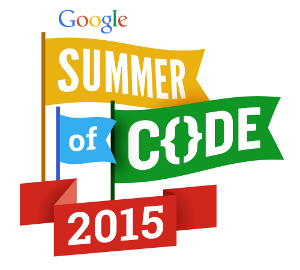Google Summer of Code 2015

Indice
The Ninux community is applying to become Mentoring Organization for the Google Summer of Code 2015.
Ninux participated in the GSoC several times:
2010 with Freifunk umbrella organization, see 2010 ideas page and look for ninux
2011 with Freifunk umbrella organization, see 2011 google melange page, 4 projects are from ninuxers
2012 as indipendent Mentoring Organization, see google melange Ninux 2012 page
2014 with Freifunk umbrella organization with 1 project: Netengine
Recently one of our community members also wrote a guest blog post on Google Open Source Blog: Orgs Get Ready: Preparing for GSoC 2015 with Freifunk.
What is Ninux?
Ninux is a Community Network, that means we are a community of volounteers that are using the open source approach in building and interconnecting wireless and wired networks in the Italian peninsula.
Our networks, according to the Picopeering Agreement, are free to join, everybody is welcome!
We invest quite a lot of time and energy in teaching new people how to use, build and extend the network.
Our key aim is freedom of communication through electronic means.
We are not an internet service provider, we don't provide free internet connection, although some community network members might share their internet connection with anyone or a few other friends through the network.
If you're curious to see where our networks are located, check out our community map or our experimental new map.
What is the Google Summer of Code?
The Google Summer of Code is an international program that offers student developers stipends to write code for various open source and free software projects.The program offer funds for several open source, free software, and technology-related projects over a three month period. Since its inception in 2005, the program has brought together nearly 2500 successful student participants and 2500 mentors from 98 countries worldwide, all for the love of code. Through Google Summer of Code, accepted student applicants are paired with a mentor or mentors from the participating projects, thus gaining exposure to real-world software development scenarios and the opportunity for employment in areas related to their academic pursuits. In turn, the participating projects are able to more easily identify and bring in new developers. Best of all, more source code is created and released for the use and benefit of all.
Find more info about the GSoC in the Frequently Asked Questions page.
Why do we want to participate in the GSoC?
There are several good reasons for which we participate in the GSoC:
it's a nice way to help young people learn how to participate to FOSS projects
it's a fun way for us to become better at teaching technical things to newcomers
it's a good way to attract young developers in our community
it's an effective way to get stuff done in a shorter time
it's a great way to make mentors and participants feel part of a community!
Ideas
Here is a list of our project ideas.
Ninuxoo: Enhanced search engine crawling
Difficulty: Beginner developer
Required skills:
- Python
- MySQL (for database queries)
- FTP protocol general knowledge
- HTTP protocol general knowledge
Brief explaination:
Ninuxoo is a search engine for SMB/CIFS and FTP shared folders. It is a popular service inside the ninux.org community network and its source code can be found on github: https://github.com/ninuxorg/ninuxoo.
Currently, the crawling of FTP shared folder is broken and we are aiming at adding new features to the crawler.
Expected result:
A new version of ninuxoo with:
- fixed crawling of FTP shared folders
- added possibility to crawl files shared through HTTP
- the crawler should be aware of possible loops caused by symlinks
Mentor:
Claudio Pisa, active ninux contributor and creator of ninuxoo.
Netdiff: add support for NetJSON
Difficulty: Beginner/Intermediate developer
Required skills:
- Python
- Routing protocols
- JSON
Brief explaination:
Netdiff is an experimental pure python library that we are developing to parse network topologies from routing protocols like OLSRd 1 and batman-advanced and detect changes in network topology.
We want to be able to parse more routing protocols and convert their output to NetJSON, a draft standard JSON format we are working on with other community networks, more information here: https://github.com/interop-dev/json-for-networks and we also want to be able to easily calculate changes in the network topology (new links, dropped links).
Expected result:
The goals of this project are the following (ordered by priority):
- design a class which is able to convert a networkx topology in a NetJSON topology
- add a clean way to calculate differences between two networkx topologies
- write a parser which understands the output of the OLSRd1 jsoninfo plugin and converts it to an internal networkx topology
- write a parser which understand the output of the batman-advanced JSON topology tool (alfred / vis) and converts it to an internal networkx topology
- write a parser which understands the output of the OLSRd2 JSON topology tool and converts it to an internal networkx topology
propose an experimental integration with nodeshot: read topology data and update the links in the database
Each one of the main features will need to be unit tested and documented in the README. The library needs to maintain compatibility with python 2.7 and python 3.
At least 4 tasks out of 6 will need to be done in order to consider the project successful.
Mentor:
Federico Capoano, active ninux contributor.








